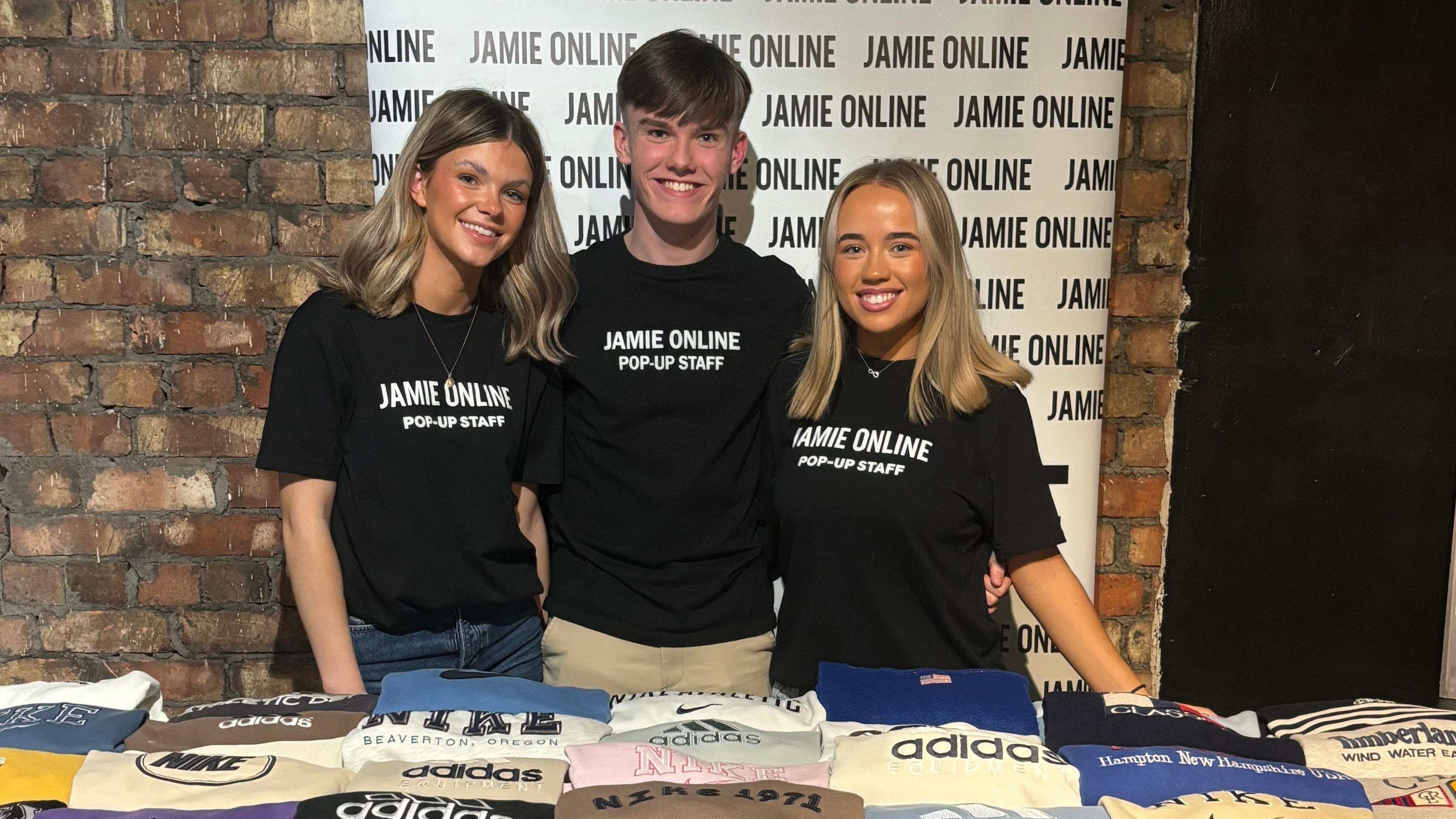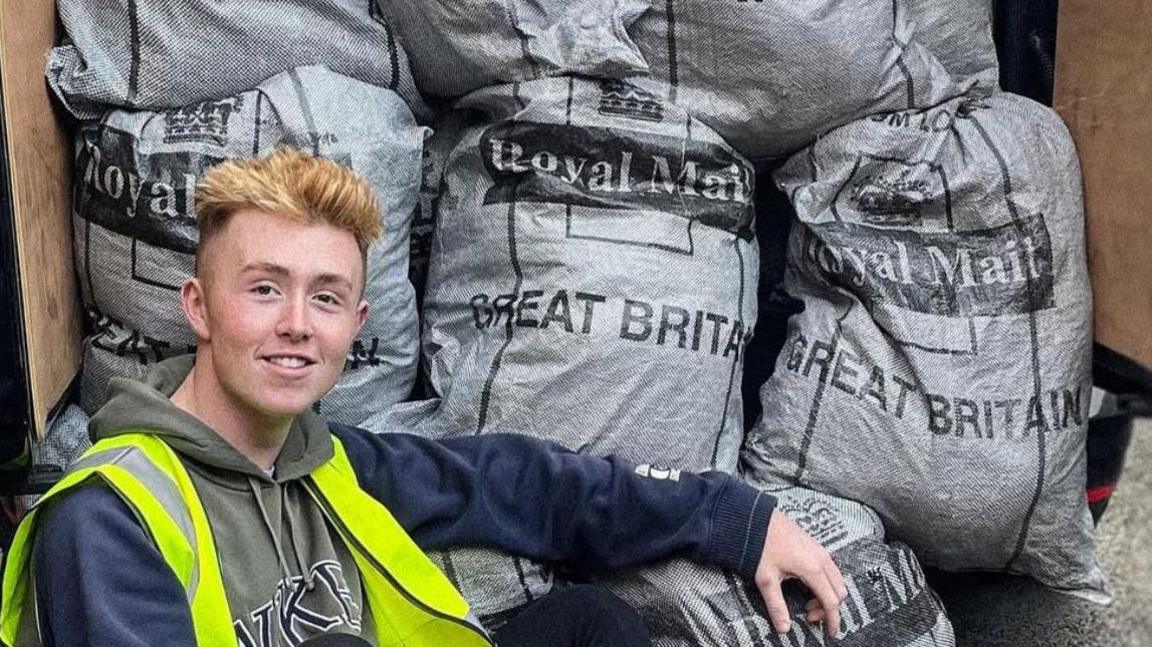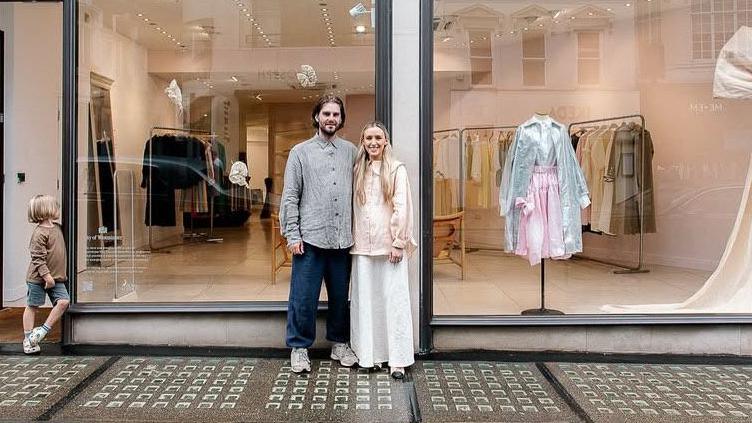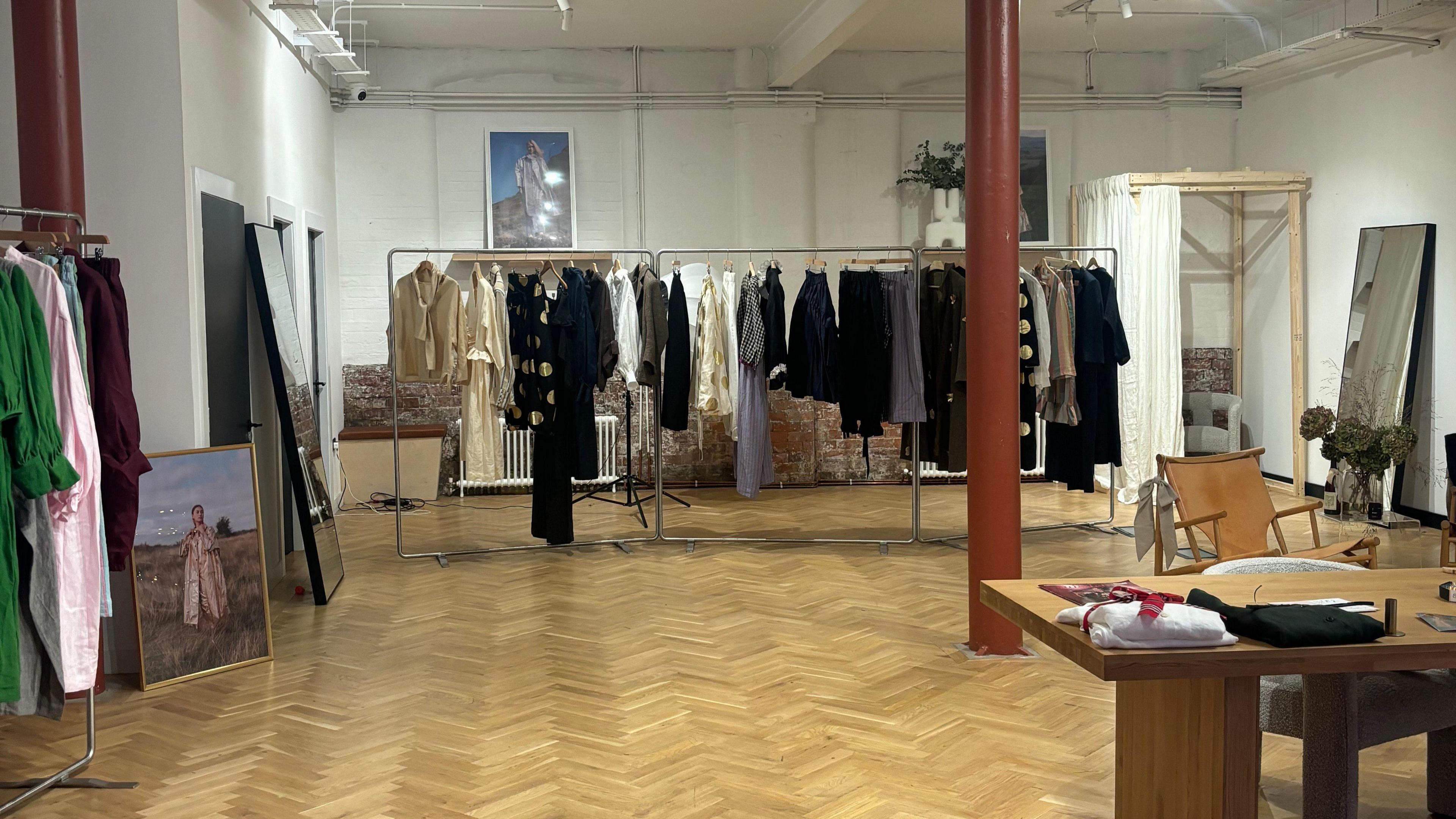How fashion pop-ups are helping a new generation of entrepreneurs

Jamie's business has sold to influencers and online personalities like Madelyn Cline and Molly Mae
- Published
Jamie Harkin was jobless, directionless and back living with his parents in Omagh, County Tyrone after dropping out of university.
His dreams of becoming a lawyer had turned sour and, after leaving his course at King's College London, he did not know what would come next.
It was during lockdown that he decided to start selling his old clothes on the fashion app Depop.
Fast forward to 2025 and Jamie lives in Toronto, heading up his own business - Jamie Online, a vintage fashion clothing brand that aims to make thrifting second-hand fashion easier.
And while the company is based in Omagh, it is one of many online businesses benefitting from a temporary presence on the High Street via a pop-up shop.
Pop-ups have allowed Jamie Online to take business right across Europe, from Paris for the city's famed fashion week in 2023 to, most recently, Belfast for Christmas.
Figures from PricewaterhouseCoopers (PwC) show that about 10,000 pop-ups appeared on UK and Irish high streets 10 years ago - but that number has since doubled.
Lisa Hooker, leader of industry for consumer markets at PwC, said: "High street stores dedicated to retail and leisure have been in decline by 2% a year on average, but pop-ups are growing as people want the newness and fun they provide without commitment.
"The main aim is not normally to make money but to elevate your brand and build relationships."

The Jamie Online team at their Belfast Christmas pop-up
What is a pop-up shop?
Pop-ups are temporary retail spaces set up for a short time to sell products or promote a cause.
Often they are used to test new products or markets; generate awareness; or to introduce new product lines. They can also be used to respond to seasonal demands or trends.
Usually they're set up in busy areas with high foot traffic, like high streets or shopping centres, and can take many forms, from a traditional bricks-and-mortar space to a market stall.
From solicitor to second-hand style

Jamie with some of his companies orders
At the Jamie Online Christmas pop-up in Belfast, the firm's marketing manager Mia Gregory said the temporary move gives them the chance to "interact with customers".
The firm, which has sold to influencers and online personalities like Madelyn Cline and Molly Mae, is learning the best way to approach the art of the pop-up.
"We've realised in the past that a three-day pop-up has been really good for us but, at this time of year, a Saturday is always our busiest day," said operations manager Mary Gormley.
She added that organising a pop-up is not straightforward: "There's a lot more that goes into it than you would think, but it's good fun getting it organised and it's good fun being here."
Jamie Harkin's journey from legal hopeful to online fashion began after he completed his A-levels at Drumragh College in Omagh and headed to London for university.
But after hating the experience he decided to leave. Starting to sell clothes led him, almost by luck, to seeing "a gap in the market" - and he went for it.
His business, started from a £500 investment, sources products from over 30 countries across the world, with the aim of "streamlining the process of second-hand thrifting".

Joel and Amy outside the Kindred pop-up store in Mayfair, London
'Just show up and bring your stock'
The pop-up trend is also being used by another fashion business, one dealing in a fabric with a long and proud history on the island of Ireland.
Amy Anderson and her husband Joe own Kindred of Ireland, a linen business, which sees her following in her own family history - Amy grew up listening to stories of her grandparents working at the Moygashel Linen Mill.
"She grew up hearing these stories and felt a calling to go back to these roots," said Joe.
Like Jamie, Amy was at a crossroads after she left school but, following a gap year and six months working in China, she decided to apply for a design and fashion course at Ulster University.
After graduating in 2020, she launched Kindred - a business she is now taking to people via pop-ups.
Speaking about a pop-up in Belfast, she said it was great to meet new customers and those who had already bought from her online.
"We're a Belfast brand but because we're online you don't get to meet the people."

The Kindred of Ireland shop in Belfast's Cathedral Quarter
Joel said the aim of their pop-up is to "raise brand visibility and point people to your website".
He added "they work for us, no ties, just show up, bring your stock and test the market".
The firm have gained plenty of experiences in pop-ups, and not just in Belfast.
"We did a pop up in the middle of Mayfair in July and August, people travelled from all over England to see the collection and try things on," said Amy.
"There were people who have followed us online, but they never actually bought anything because they weren't really sure how it would fit."
"The pop-ups have given us lots to take away and learn from, we've discovered new markets and learnt stuff from our customers that we never would online."